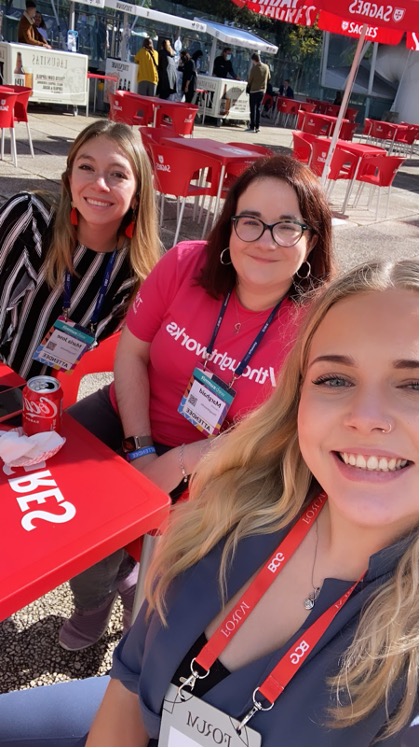
When joining a company, things can feel a bit daunting. A new workplace culture, team and projects mean that you can find yourself grappling with some insecurities. For people who are new to an office career, this feeling can be heightened. Without being used to a corporate environment, expectations and behaviors can feel confusing and ambiguous. It can be hard to know where you fit in. This is why finding yourself and your confidence is important.
You bring a skill
Always remember that there is a reason that you got this job in the first place. You bring a set of skills that are needed on your team. Of course there will be people that have been at the company longer than you or are more experienced than you but this doesn’t make you any less valuable. Being new to an organization can actually give you a good advantage. For example, you can:
Look at processes and content from an entirely new and fresh perspective
Notice flaws or potential improvements that might not have been spotted: Read this blog for more on detecting change in a new environment
Give your own ideas and provide an exciting new take on projects: This is an amazing opportunity to be seen and make a difference
Beat imposter syndrome
I was doing an internship a few years ago. I had just left university and I was suddenly working at a medical equipment manufacturing company. I was surrounded by really impressive people and I started to feel a bit of a fraud. I remember when I got some really positive feedback from my manager. I did not believe their comments one bit. This is when I first learnt the term Imposter Syndrome. It is something that a lot of people experience and I still feel this from time to time. If I make a mistake I think about it for ages and come to massive conclusions about myself; I convince myself that I am rubbish at my job when this is realistically not the case. One thing that helps me is to think about the things I did to help me get to the position I am in today. I think about the unpaid internships, the blogs I ran at university, the music outlets I wrote for, the social media modules I completed. My colleague, Matheus Tait, wrote a blog with steps to help beat Imposter Syndrome. Check it out for some really useful tips.
Be honest
Being honest is integral to growth. It’s okay to say ‘I don’t know’ and it’s okay to say when you’re finding something challenging. An obstacle for me was public speaking and this meant I found it challenging to speak out on calls. I was honest with my close colleagues about this and I have found that it’s enabled me to work with them to slowly push me out of my comfort zone whilst also taking this into account. This meant I didn’t just panic at the thought of having to present, but we could work together to push me so I develop and start to overcome this anxiety. Being able to say ‘I am struggling’ with something will mean your wellbeing will improve and you can work together to find resolutions. Having an open relationship with your team will help you in many ways.
Find a good mentor
When joining a new team, this is a great opportunity to utilize connections and make some great friends. It is also a chance to find a mentor. A professional mentor can really help you grow confidence in a new position. They will have (probably) been at the company, or in the industry, longer than you so they have knowledge that you might find useful. This person can share knowledge, skills and expertise and this can be a rewarding experience for both you and your mentor. During my time at Thoughtworks, I have had amazing mentors and this has been something that I feel has been crucial to my growth and development. Knowing you have the support of someone more experienced gives you the confidence to make decisions and ask questions.
Learn from others
In a few months I will have been at Thoughtworks for two years. During this time I have learnt so much. I have learnt whilst being involved in projects and during my everyday work. However, I have learnt the most from the people around me. Asking questions and getting different perspectives on things has been so important to my development.
Reach out to people in your organization. Ask your team members questions and be inquisitive. This will teach you more than you can imagine.
Something I also want to do is start going on more courses and utilizing resources and conferences. Recently I went to Web Summit in Lisbon with a colleague and it was an awesome experience. Hearing from so many inspiring individuals giving some amazing perspectives and advice was so valuable and I felt truly lucky. Conferences and courses are engineered to help with professional growth so, if you have the opportunity, I would also take up those too.
Disclaimer: The statements and opinions expressed in this article are those of the author(s) and do not necessarily reflect the positions of Thoughtworks.









